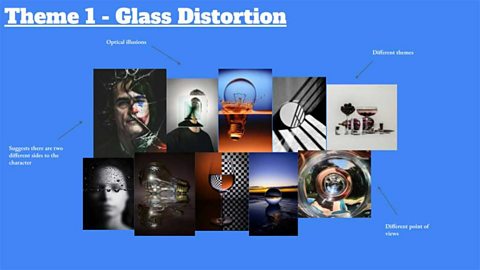More guides on this topic
- Finding inspiration - OCR
- Analytical drawing - OCR
- Developing ideas - OCR
- Creating a design brief - OCR
- Experimenting with materials and techniques - OCR
- Recording and observing - OCR
- Annotating your work - OCR
- Analysing and evaluating - OCR
- Assessment objectives and presenting your work - OCR
- Externally set assessment - OCR
